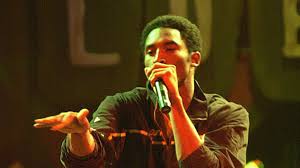Since the early 90’s the Hip Hop and professional sports industries have had an interesting relationship. From Master P and No Limit Sports Management signing Ricky Williams into one of the worst contracts in sports history to Jay-Z influencing the move of the Nets to Brooklyn, Hip Hop has grown to become a swing vote in major pro-sports decisions. Even some of the most talented athletes of our time have tried their hand at hopping on a track or two, with few success stories among the bunch. Shaquille O’Neal, Chris Webber, Cedric Ceballos, and Deion Sanders have all stepped up to the mic in the past in an attempt to make a name for themselves in Hip Hop. Typically, the anthology of the rapper-athlete doesn’t last past a debut album sending the pseudo-artist back to the league from whence they came never to make much of a mark on Hip Hop culture.One of these unsuspecting rappers to quickly hop on the scene and fade into memory was the Black Mamba himself, Kobe Bryant.
Little is said about the history of Philadelphia’s Hip Hop scene. As far as most know, Schoolly D, The Roots, Eve, Meek Mill, DJ Jazzy Jeff & the Fresh Prince were all the city had to offer. Usually drowned out by whatever is going on 95 miles away in New York, Philly has an independent sound more rooted in battle rap than that of it’s urban neighbor. This culture of sharping your skills against any challenger that you cam across is exactly what shaped Bryant to be the MC that he was.
Anthony Bannister, Kevin Sanchez, Broady Boy, Jester, and Kobe Bryant would travel from their native Lodi and Parkside Avenue across Philly rhyming and battling all others who shared their passion. They took the name Chi Sah Gang after the kung fu film The Kid With The Golden Arm, following the Wu Tang Clan model. They later added members and changed their name to CHEIZAW (Canon Homo-sapiens Eclectic Iconic Zaibatsu Abstract Words).
Kobe’s lyrical ability coupled with his bright athletic future translated to dollar signs for Steve Stoute and Sony Entertainment who signed CHEIZAW in a sign-all-for-one attempt to land Bryant as a solo artist (much like LA Reed signing the Braxton sisters just to get Toni on the label). After the 1996 draft, Kobe and the rest of CHEIZAW moved to LA to start work on new music.
As soon as he signed, Kobe was put on a strict schedule. When he wasn’t following his rigorous training schedule was in the studio with some of the industry’s heavyweights. During his off season, Bryant was flown to New York to refine his ability and sharpen his sword by working with the Trackmasters at their Hit Factory studio.
Unfortunately for Kobe, Sony wasn’t interested in him getting better as a rapper. They wanted his time in New York to expose him to rap culture in preparation for his solo album launch. The single the label had in mind for him was a gimmicky pop crossover about how much the ladies love K.O.B.E. with Tyra Banks on the hook.
With Sony sure they had a #1 hit, the single was debut the 2000 NBA All Star Weekend. The performance consisted of Kobe Bryant in a leopard print hat and leather suit with backup dancers dawning his iconic No. 8 jersey. This disastrous performance caused the Hype Williams directed video scheduled to come out shortly after to be scrapped and the rest of Kobe’s debut album, Visions, put on hold.
With the lack of support after the fiasco of a performance, Kobe was treated just like any other artist with a bombed debut and was dropped by the label. That same year in a last attempt to make his rapper dreams a reality, Kobe started Head High Entertainment. With a label all his own, Kobe was able to get back to his lyrical battle rap roots and work with artists of the same tone. He signed a few acts and planned a launch party at House of Blues LA but sadly, the label never got off the ground a folded in the Fall of 2000.
Kobe Bryant’s short lived brush with musical stardom happened so fast that if you blinked, you probably missed it. The success of his career, drama of his personal life, lack of afro, and change of number were enough to make all those who were present shortcoming forget all about it. Thankfully this in no way put a damper on his career and Kobe went on to become the titan of basketball that the world knows and loves today.
